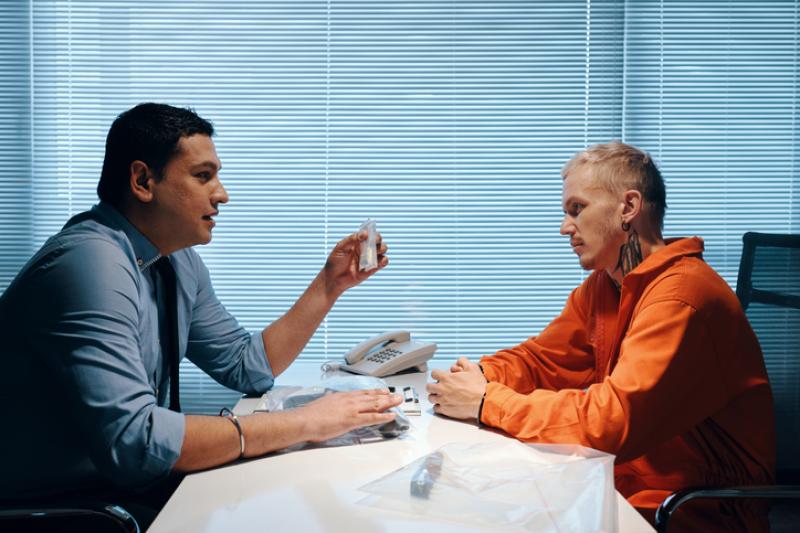DUI Checkpoints: Your Rights and How to Handle Them

As you navigate the roads of Canada, ensuring road safety is not only your responsibility but also a priority for law enforcement agencies. One common measure employed to combat drunk driving is the establishment of DUI checkpoints. While these checkpoints play a vital role in keeping our roads safe, it's essential to understand your rights and the best ways to handle these situations should you find yourself stopped at one. In this comprehensive guide, we will explore your rights at DUI checkpoints and shed light on why consulting a skilled DUI lawyer is crucial in such scenarios.
Understanding DUI Checkpoints
DUI checkpoints, also known as sobriety checkpoints or roadblocks, are temporary stops set up by law enforcement agencies to detect and deter impaired driving. The primary purpose of these checkpoints is to identify drivers who may be operating their vehicles under the influence of alcohol or drugs. While these checkpoints are legal and have proven effective in reducing drunk driving incidents, they raise questions about individual rights and proper procedure.
Your Rights at DUI Checkpoints
- The Right to Stop: DUI checkpoints are established on public roads, and as a driver, you are legally obligated to stop when directed by law enforcement. Avoid evasive actions, as attempting to evade a checkpoint can result in legal consequences.
- Identification and Questioning: While you are required to provide identification, you are not obligated to answer any questions beyond providing your name and address. You have the right to remain silent and can politely decline to answer questions about your activities or destination.
- Sobriety Tests: At a DUI checkpoint, you might be asked to perform sobriety tests, such as a breathalyzer test or field sobriety tests. While these tests are intended to determine impairment, you have the right to refuse them. However, refusal may lead to consequences such as license suspension.
- Searches: Law enforcement may not search your vehicle without your consent or without probable cause. If an officer asks for permission to search your vehicle, you have the right to decline. Be aware that if an officer has probable cause to suspect illegal activity, they may search your vehicle without your consent.
Handling DUI Checkpoints Effectively
When encountering a DUI checkpoint, keeping the following tips in mind can help you navigate the situation effectively while safeguarding your rights:
- Remain Calm: Stay calm and composed throughout the encounter. Remain courteous and cooperative, even if you believe you are being unfairly targeted.
- Provide Identification: Upon request, provide your driver's license, registration, and proof of insurance. Remember, you are not required to provide additional information about your activities.
- Be Mindful of Statements: While it's generally recommended to exercise your right to remain silent beyond providing basic information, be respectful if you choose to decline to answer questions. Simply stating that you prefer not to answer questions is sufficient.
- Sobriety Tests: You have the right to refuse sobriety tests, but it's important to understand the potential consequences. Refusal can lead to immediate license suspension and other legal implications. Consulting a DUI lawyer can help you make an informed decision based on your specific situation.
- Record the Encounter: If you feel your rights were violated during the encounter, discreetly record the interaction using your smartphone. This can serve as valuable evidence if you decide to challenge any legal actions taken.
Why Consult a DUI Lawyer?
Navigating DUI checkpoints can be complex, and your actions during these encounters can have legal implications. Consulting a skilled DUI lawyer is highly recommended for several reasons:
- Legal Expertise: DUI lawyers specialize in Canadian impaired driving laws and regulations. They can provide accurate guidance tailored to your situation.
- Rights Protection: A DUI lawyer will ensure your rights are safeguarded throughout the process, from the initial checkpoint encounter to any subsequent legal proceedings.
- Legal Strategies: If you face legal consequences as a result of a DUI checkpoint encounter, a lawyer can develop effective strategies to minimize potential penalties.
- Evidence Examination: If you believe your rights were violated during the checkpoint, a lawyer can analyze evidence, including recordings, to determine if your case has grounds for legal action.
- Case Evaluation: A DUI lawyer can assess the strength of the case against you and provide advice on potential outcomes.
In Conclusion
Encountering a DUI checkpoint can be an unnerving experience, but knowing your rights and how to handle the situation can make a significant difference. Remember to stay composed, be aware of your rights, and consult a skilled DUI lawyer if you face legal consequences as a result of the checkpoint encounter. Prioritizing your legal interests ensures that you receive fair treatment and protection under the law while contributing to the overall road safety efforts across Canada.
More to Read:
Previous Posts:







